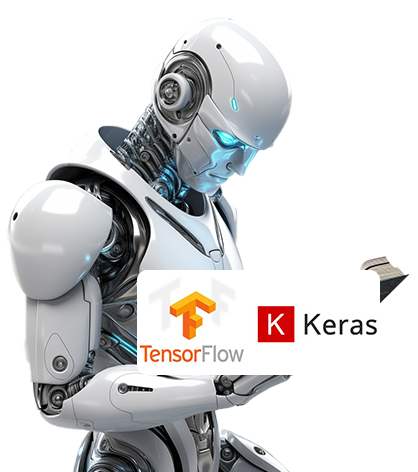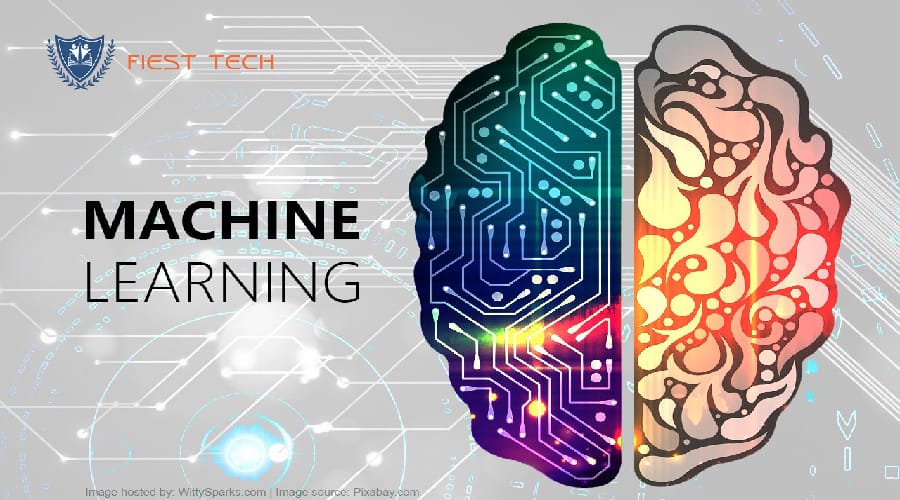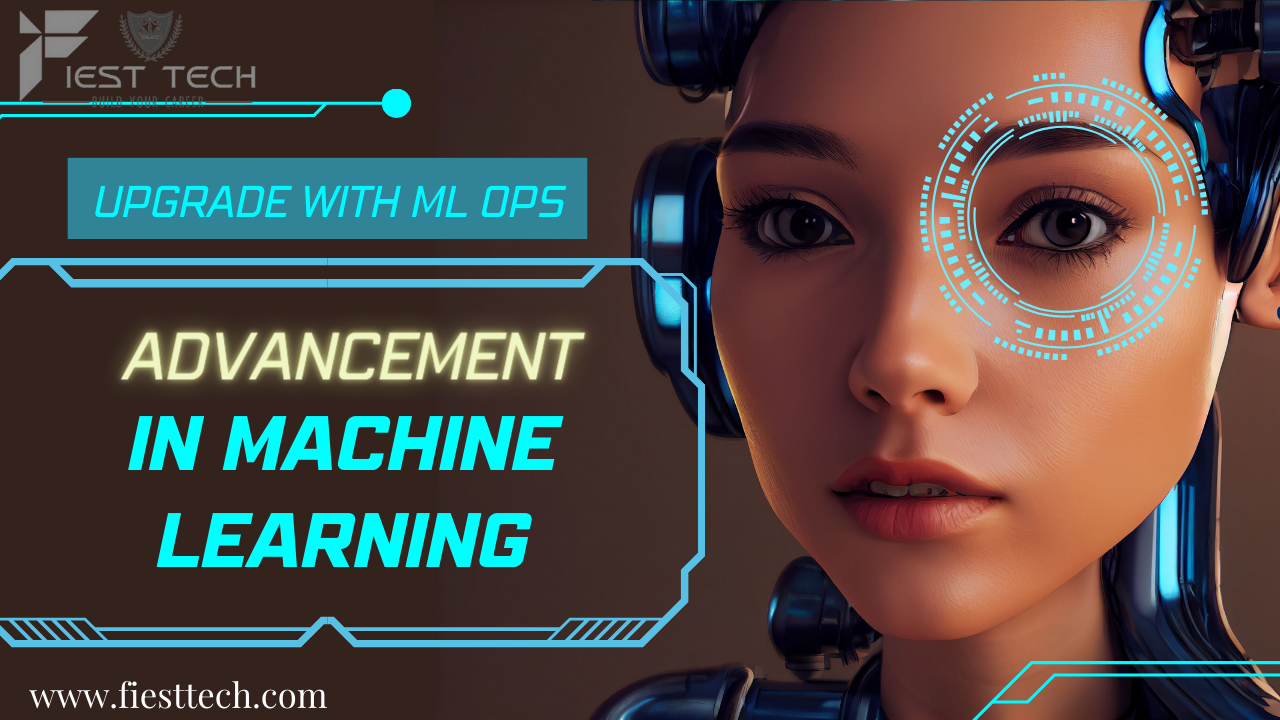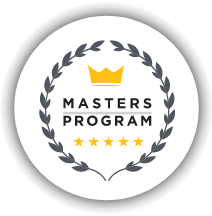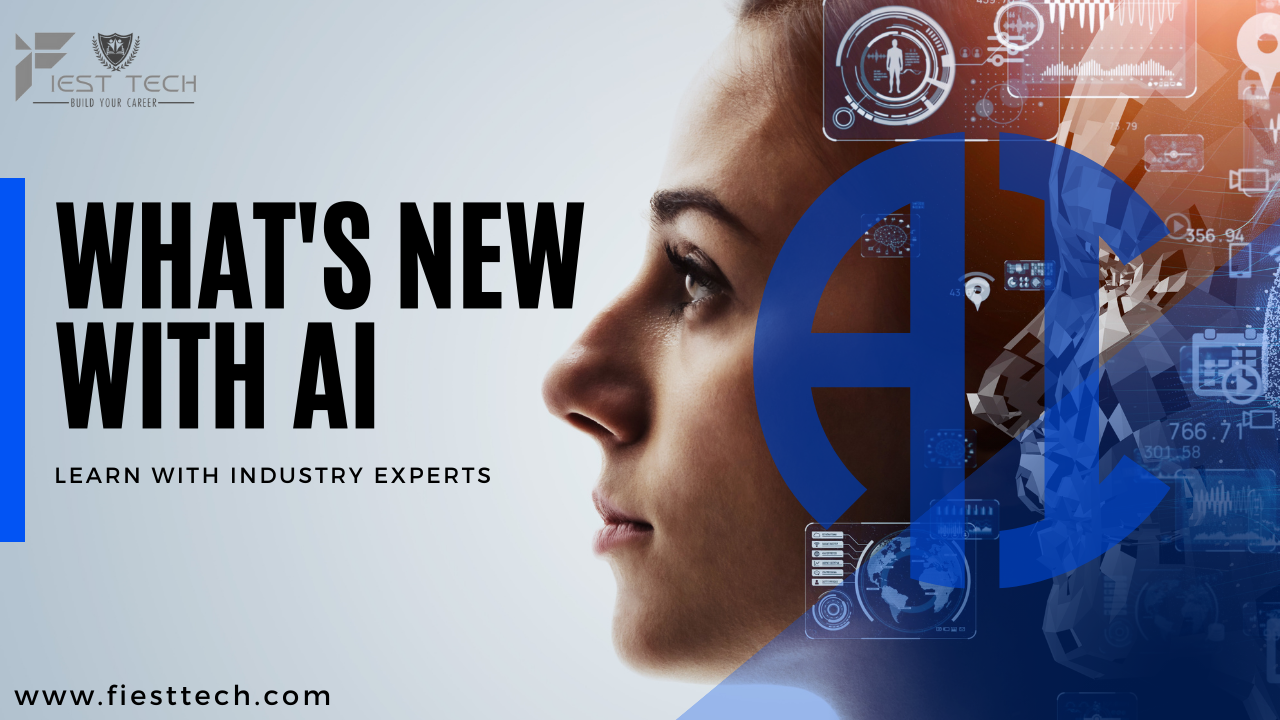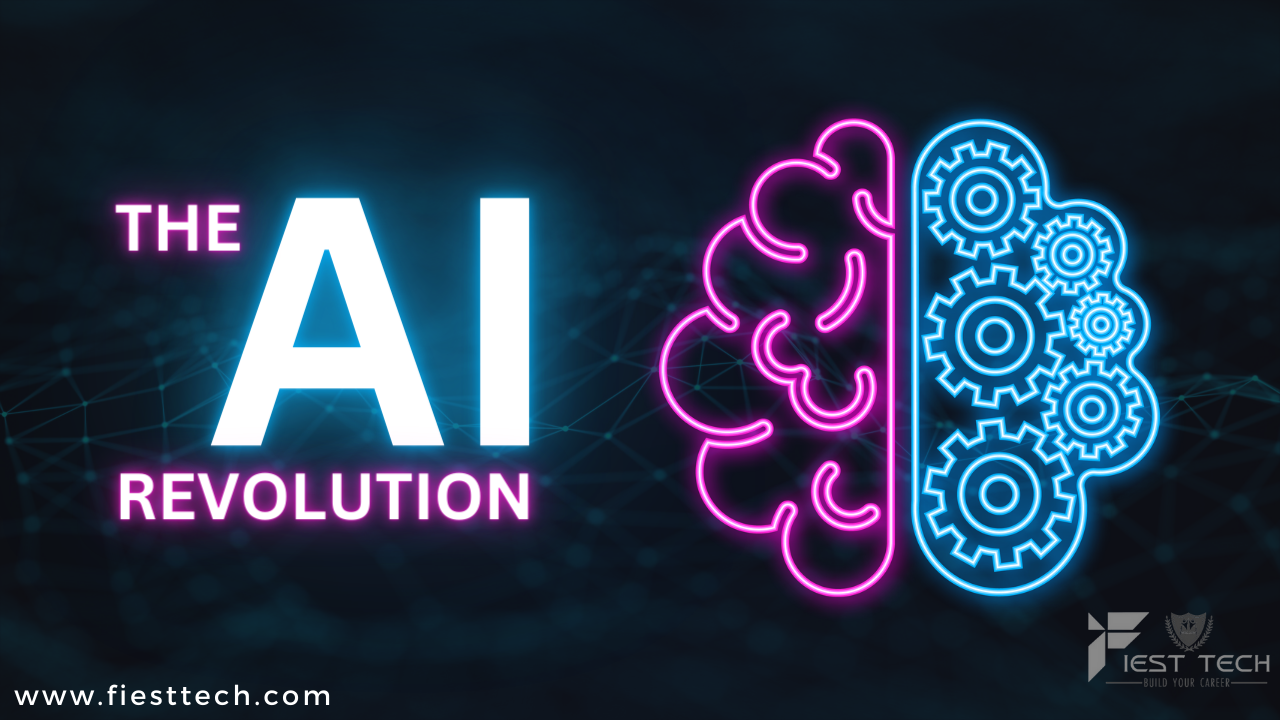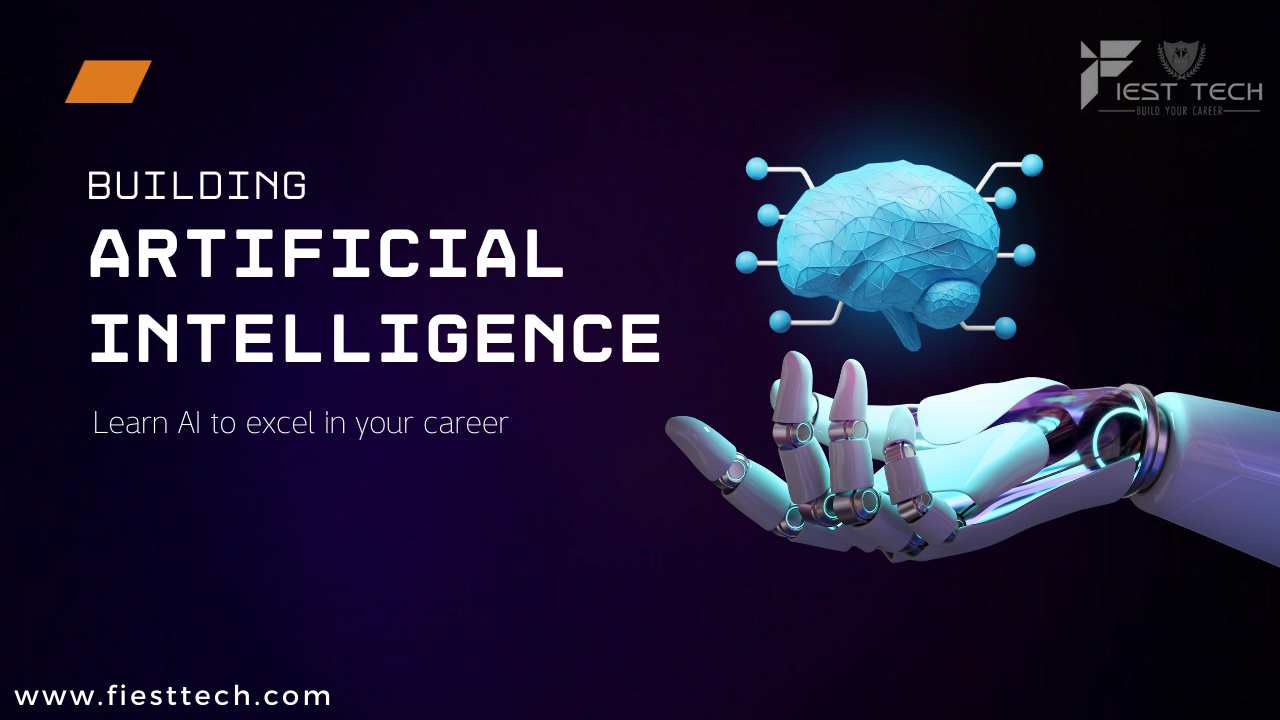Deep Learning Course Overview
This Deep Learning course with TensorFlow certification training is developed by industry leaders and aligned with the latest best practices. Keras is a high-level deep learning framework that runs on top of TensorFlow. It provides a user-friendly API to build and train neural networks. Start by learning the basics of Keras, such as model architecture, layers, and model compilation. TensorFlow is a popular deep learning framework developed by Google. It provides more flexibility and control compared to Keras, allowing you to build complex models. Learn the TensorFlow basics, including tensors, operations, and the computational graph.
Remember, deep learning is a rapidly evolving field, and staying up-to-date with the latest research papers and advancements is crucial
Deep Learning With Tensorflow Key Features
At Fiesttech, we value the trust of our patrons immensely. But, if you feel that this Deep Learning With Tensorflow does not meet your expectations, we offer a 7-day money-back guarantee. Just send us a refund request via email within 7 days of purchase and we will refund 100% of your payment, no questions asked!
- Computational Graph
- Distributed Computing
- TensorBoard
- Serving and Deployment
- TensorFlow Extended (TFX)
- Support for Multiple Languages
Skills Covered
- Keras and TensorFlow Framework
- PyTorch and its elements
- Image Classification
- Artificial Neural Networks
- Autoencoders
- Deep Neural Networks
- Conventional Neural Networks
- Recurrent Neural Networks
- ADAM Adagrad and Momentum
Benefits
TensorFlow is widely used in both academia and industry, and proficiency in TensorFlow is highly valued by employers in the field of deep learning and machine learning. By completing TensorFlow training, you acquire a valuable skill set that can boost your career prospects and open up opportunities in various industries. TensorFlow training teaches you how to optimize the performance of your deep learning models. You will learn techniques to enhance training speed, improve memory utilization, and make effective use of hardware resources like GPUs. These optimization skills are essential for training models faster and efficiently scaling them to handle larger datasets.
Annual Salary
Hiring Companies
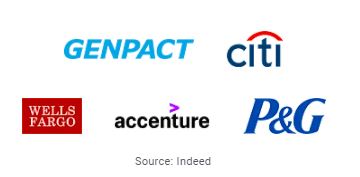
Annual Salary
Hiring Companies
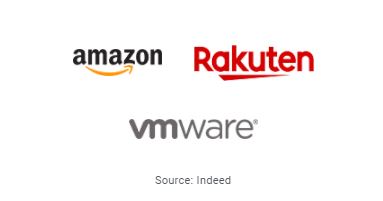
Annual Salary
Hiring Companies
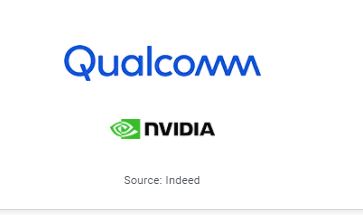
GO AT YOUR OWN PACE
Training Options
Explore all of our training options and pick your suitable ones to enroll and start learning with us! We ensure that you will never regret it!
APPLY
Who Can Apply
- Engineering Students and Recently Graduate Candidates
- Software Developers
- Business Analysts
- Automation Engineers
- Solution Architects
- Quality Analysts
- Project Managers
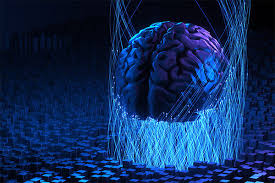
Deep Learning Course Curriculum
Eligibility
Demand for skilled Deep Learning Engineers is booming across a wide range of industries, making this Deep Learning course with Keras and Tensorflow certification training well-suited for professionals at the intermediate to advanced level. We recommend this Deep Learning course particularly for Software Engineers, Data Scientists, Data Analysts, and Statisticians with an interest in deep learning.
Pre-requisites
Participants in this Deep Learning certification training should have familiarity with programming fundamentals, a fair understanding of the basics of statistics and mathematics, and a good understanding of machine learning concepts.
Course Content
Live Course
Self Paced
-
3.01 - 2.1 Learning Objectives
02:11 -
3.02 - 2.3 TF2x and Eager Execution
01:35 -
3.03 - 2.4 Tensorflow Hello World
03:32 -
3.04 - 2.5 Linear Regression With Tensorflow
05:44 -
3.05 - 2.6 Logistic Regression With Tensorflow
01:34 -
3.06 - 2.7 Intro to Deep Learning
01:35 -
3.07 - 2.8 Deep Neural Networks
04:34
-
11.01 - What is AI and Deep learning
01:21 -
11.02 - Brief History of AI
00:54 -
11.03 - Recap: SL, UL and RL
00:54 -
11.04 - Deep learning : successes last decade
01:21 -
11.05 - Demo & discussion: Self driving car object detection
00:32 -
11.06 - Applications of Deep learning
02:32 -
11.07 - Challenges of Deep learning
02:32 -
11.08 - Demo & discussion: Sentiment analysis using LSTM
01:21 -
11.09 - Fullcycle of a deep learning project
03:32 -
11.10 - Key Takeaways
00:54 -
11.11 - Knowledge Check
00:25
-
12.01 - Biological Neuron Vs Perceptron
01:21 -
12.02 - Shallow neural network
02:32 -
12.03 - Training a Perceptron
03:32 -
12.04 - Demo code: Perceptron ( linear classification) (Assisted)
05:44 -
12.05 - Backpropagation
01:21 -
12.06 - Role of Activation functions & backpropagation
07:28 -
12.07 - Demo code: Backpropagation (Assisted)
02:32 -
12.08 - Demo code: Activation Function (Unassisted)Demo code: Activation Function (Unassisted)
03:32 -
12.09 - Optimization
01:21 -
12.10 - Regularization
05:44 -
12.11 - Dropout layer
02:32 -
12.12 - Key Takeaways
01:21 -
12.13 - Knowledge Check
00:25 -
12.14 - Lesson-end Project (MNIST Image Classification)
07:28
-
13.01 - Deep Neural Network : why and applications
02:32 -
13.02 - Designing a Deep neural network
03:32 -
13.03 - How to choose your loss function?
01:21 -
13.04 - Tools for Deep learning models
02:32 -
13.05 - Keras and its Elements
01:21 -
13.06 - Demo Code: Build a deep learning model using Keras (Assisted)
03:32 -
13.07 - Tensorflow and Its ecosystem
02:32 -
13.08 - Demo Code: Build a deep learning model using Tensorflow (Assisted)
05:44 -
13.09 - TFlearn
02:32 -
13.10 - Pytorch and its elements
03:32 -
13.11 - Key Takeaways
00:32 -
13.12 - Knowledge Check
00:54 -
13.13 - Lesson-end Project: Build a deep learning model using Pytorch with Cifar10 dataset
14:32
-
14.01 - Optimization algorithms
05:44 -
14.02 - SGD, Momentum, NAG, Adagrad, Adadelta , RMSprop, Adam
05:44 -
14.03 - Batch normalization
03:32 -
14.04 - Demo Code: Batch Normalization (Assisted)
02:32 -
14.05 - Exploding and vanishing gradients
01:12 -
14.06 - Hyperparameter tuning
00:54 -
14.07 - Interpretability
07:28 -
14.08 - Key Takeaways
01:21 -
14.09 - Knowledge Check
01:21 -
14.10 - Lesson-end Project: Hyperparameter Tunning With Keras Tuner
07:28
-
16.01 - Sequence data
03:32 -
16.02 - Sense of time
02:32 -
16.03 - RNN introduction
01:21 -
16.04 - LSTM ( retail sales dataset kaggle)
05:44 -
16.05 - Demo code: Stock Price Prediction with LSTM (Assisted)
03:32 -
16.06 - Demo code: Multiclass Classification using LSTM (Unassisted)
02:32 -
16.07 - Demo code: Sentiment Analysis using LSTM (Assisted)
07:28 -
16.08 - GRUs
03:32 -
16.09 - LSTM Vs GRUs
02:32 -
16.10 - Key Takeaways
01:21 -
16.11 - Knowledge Check
00:32 -
16.12 - Lesson-end Project: Stock Price Forecasting
07:28
-
17.01 - Introduction to Autoencoders
05:44 -
17.02 - Applications of Autoencoders
05:44 -
17.03 - Autoencoder for anomaly detection
07:28 -
17.04 - Demo code: Autoencoder model for MNIST data (Assisted)
02:32 -
17.05 - Key Takeaways
01:21 -
17.06 - Knowledge Check
01:21 -
17.07 - Lesson-end Project: Anomaly detection with Keras
03:32

Deep Learning With Tensorflow Exam & Certification
The best way to crack the TensorFlow Developer certification exam is by taking up this Deep Learning course. Once you complete the course, you can register and appear for the TensorFlow developer certification exam. During the exam, there will be five categories and students will complete five models, one from each category. The categories include a basic Machine Learning model, model from learning dataset, CNN with real-world image dataset, NLP Text Classification with real-world text dataset, and Sequence Model with the real-world numeric dataset. One can participate in this TensorFlow certification examination with a system that supports the PyCharm IDE requirements. (source: analyticsindiamag)
-
Here are the benefits of taking TensorFlow certification exam:
- Learn new things about Machine Learning - This certification exam will help you increase your proficiency in Machine Learning.
- Receive recognition - Once you are certified, it is imperative that you will be recognized by the TensorFlow community
- Showcase skills - The TensorFlow certification is a testament to the fact that you are well-learned about it, which also is a proof of your skills.
The TensorFlow Developer certificate exam costs $100, which includes one exam attempt.
To be able to appear TensorFlow certification exam, here are the minimum requirements that you need to have: RAM - 4 GB Disk Space - 2.5 GB and another 1 GB for caches Monitor resolution - 1024 x 768 Operating system - officially released 64-bit versions of Microsoft Windows 8 or later, macOS 10.13 or later, or any Linux distribution that supports Gnome, KDE, or Unity DE.
Once you start the TensorFlow certification exam, you will have 5 hours to complete it and submit it. However, if you do not submit the answers within 5 hours the portal will automatically submit your answers once the time completes.
You will have three attempts to pass and get the tensorflow developer certificate.
Upon successful completion of the Deep Learning course with TensorFlow training, you will be awarded an industry-recognized course completion certificate from Fiest Tech's which has lifelong validity.
To obtain the Deep Learning with TensorFlow certification, you will need to: Attend one complete batch of Deep Learning course with TensorFlow training Complete and attain evaluation of any one of the given projects
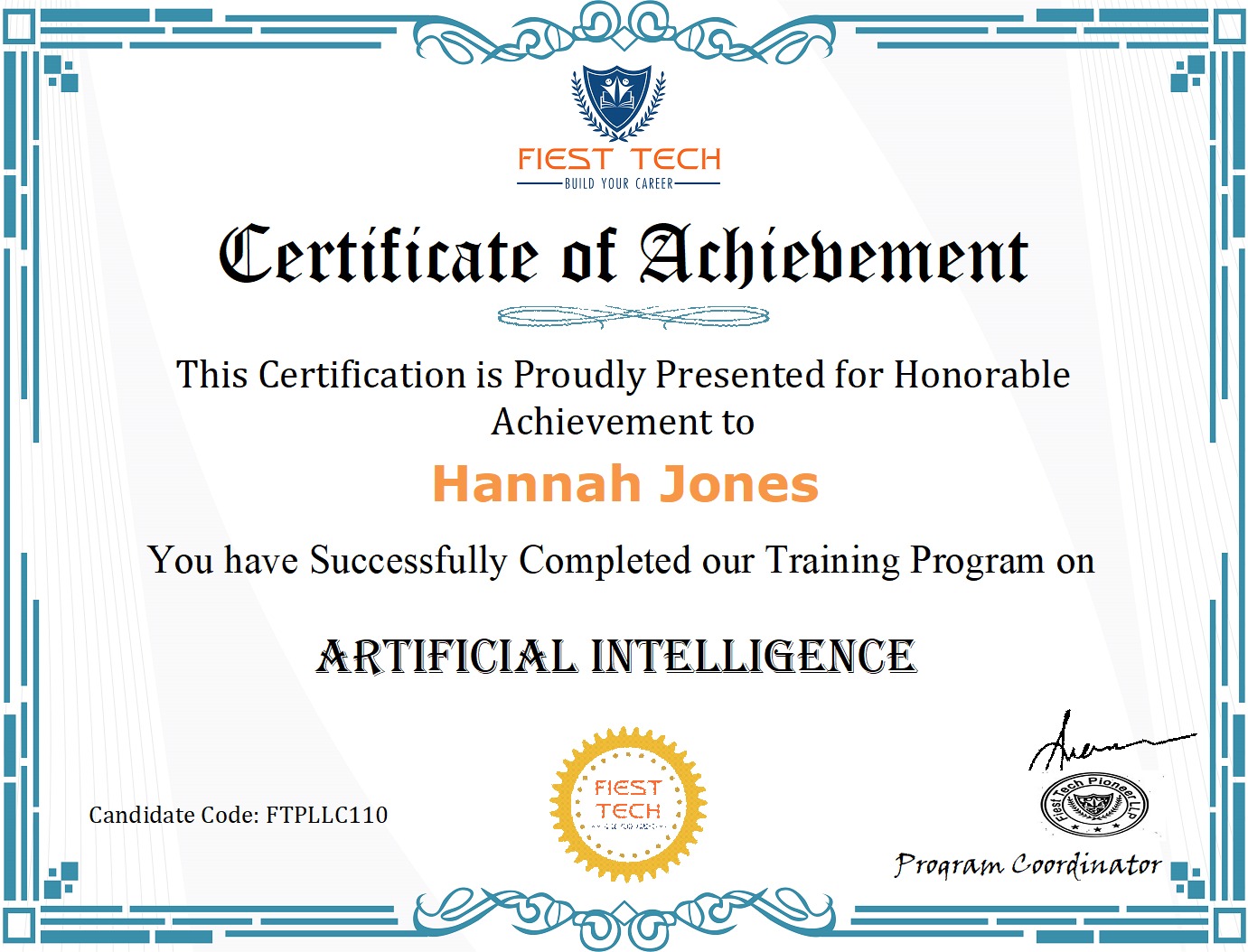
Bootcamp
Why Online Bootcamp
Why Tensor Flow for Deep Learning
TensorFlow is a popular open-source deep learning framework developed by Google. It provides a comprehensive set of tools and libraries for building and deploying machine learning models.
TensorFlow Architecture
TensorFlow offers a flexible and scalable architecture that allows you to define and deploy models on various platforms, including CPUs, GPUs, TPUs (Tensor Processing Units), and mobile devices
TensorFlow API used in Deep Learning
TensorFlow provides high-level APIs like Keras, which simplify the process of building deep learning models.
TensorFlow Model Serving and Deployment
TensorFlow provides tools for serving and deploying trained models in production environments.
FAQS
Deep Learning With Tensorflow Course FAQs
This Deep Learning course with Keras and TensorFlow certification training will give you a complete overview of Deep Learning concepts, enough to prepare you to excel in your next role as a Deep Learning Engineer. It will help you become familiar with artificial neural networks, PyTorch, autoencoders, and more. At the end of our best deep learning course online, you will get an industry-recognized course completion certificate from Fiest Tech, which will be a testament to your skills with deep learning specialization.
In traditional machine learning, most of the applied features need to be identified by a domain expert in order to reduce the complexity of the data. Whereas the biggest advantage of the Deep Learning algorithm is it tries to learn high-level features from data in an incremental manner, which makes the process simpler and popular. Deep Learning techniques outperform other techniques when the data size is large and complex, and also, this technique is behind many high-end innovations.
TensorFlow is an open source library created and released by google for numerical computation and building deep learning models.
Deep Learning, also known as Deep Neural Learning, is a subset of machine learning, an application of AI, where machines imitate the workings of the human brain and employ artificial neural networks to process the information.
Companies are gathering a massive amount of data every day and analyzing them to draw meaningful business insights. Most of that data is in an unstructured format, i.e. in the form of text, image, audio, and video rather than numerical. Deep learning is quite effective for analyzing such types of data and has become vitally important for business decision making. With our TensorFlow certification course, you can learn all the essential deep learning concepts from scratch.
Fiest Tech provides Integrated labs for all the hands-on execution of projects. The learners will be guided on all aspects, from deploying tools to executing hands-on exercises.
All of our highly qualified trainers are Deep Learning and Machine Learning industry experts with years of relevant industry experience. Each of them has gone through a rigorous selection process that includes profile screening, technical evaluation, and a training demo before they are certified to train for us. We also ensure that only those trainers with a high alumni rating remain on our faculty.
All of the TensorFlow training classes are conducted via live online streaming. These classes for the TensorFlow course are interactive sessions that enable you to ask questions and participate in discussions during class time.
With the relevant skills that you gain from our Deep Learning course, you can apply for top job roles like Machine Learning Engineer, Data Scientist, Business Intelligence Developer, NLP Scientist, and more.
Deep learning skills are in high demand and offer professionals a clear edge over others when applying for top related job roles like Machine Learning Engineer, Data Scientist, or NLP Specialist. Requiring a high level of technical understanding, one may not find it easy to learn deep learning through self-study. Taking up this Deep Learning course is a better option where you get the right guidance from industry experts
We offer 24/7 support through email, chat, and calls. We also have a dedicated team that provides on-demand assistance through our community forum. What’s more, you will have lifetime access to the community forum, even after completion of your Deep Learning course online with us.
Yes. We do offer a money-back guarantee for many of our training programs. Refer to our Refund Policy and submit refund requests via our Help and Support portal.
Fiest Tech provides recordings of each class of Deep Learning course so you can review them as needed before the next session. With Flexi-pass it gives you access to all classes for 90 days so that you have the flexibility to choose sessions as per your convenience.
The TensorFlow certification training is conducted through live streaming. They are interactive sessions that enable you to ask questions and participate in discussions during class time. We do, however, provide recordings of each TensorFlow course session you attend for your future reference. Classes are attended by a global audience to enrich your learning experience.
Our teaching assistants are a dedicated team of subject matter experts here to help you get certified in TensorFlow in your first attempt. They engage students proactively to ensure the course path is being followed and help you enrich your learning experience, from class onboarding to project mentoring and job assistance. Teaching Assistance is available during business hours.
Related Programs
AI & Machine Learning Related Programs


